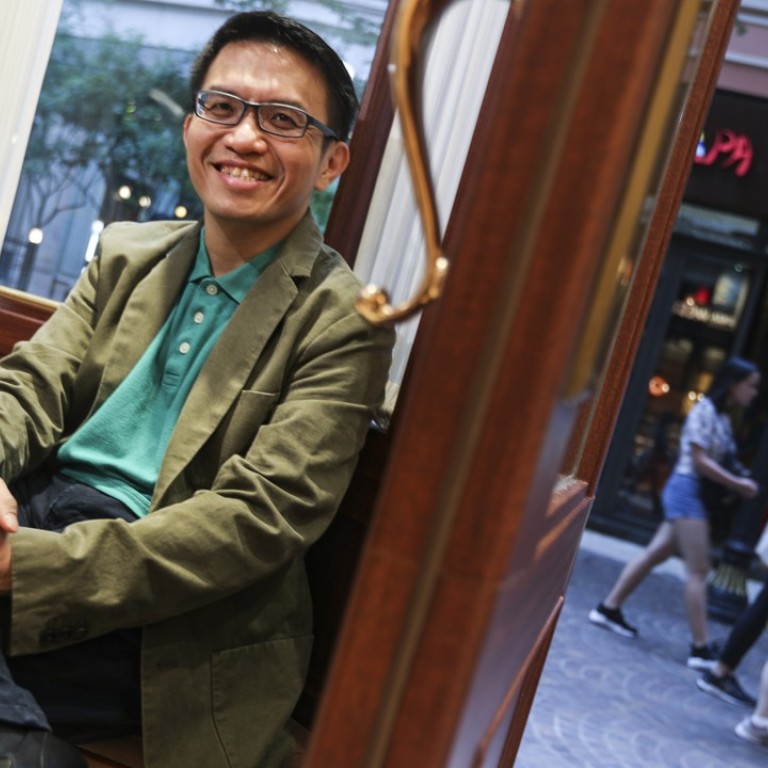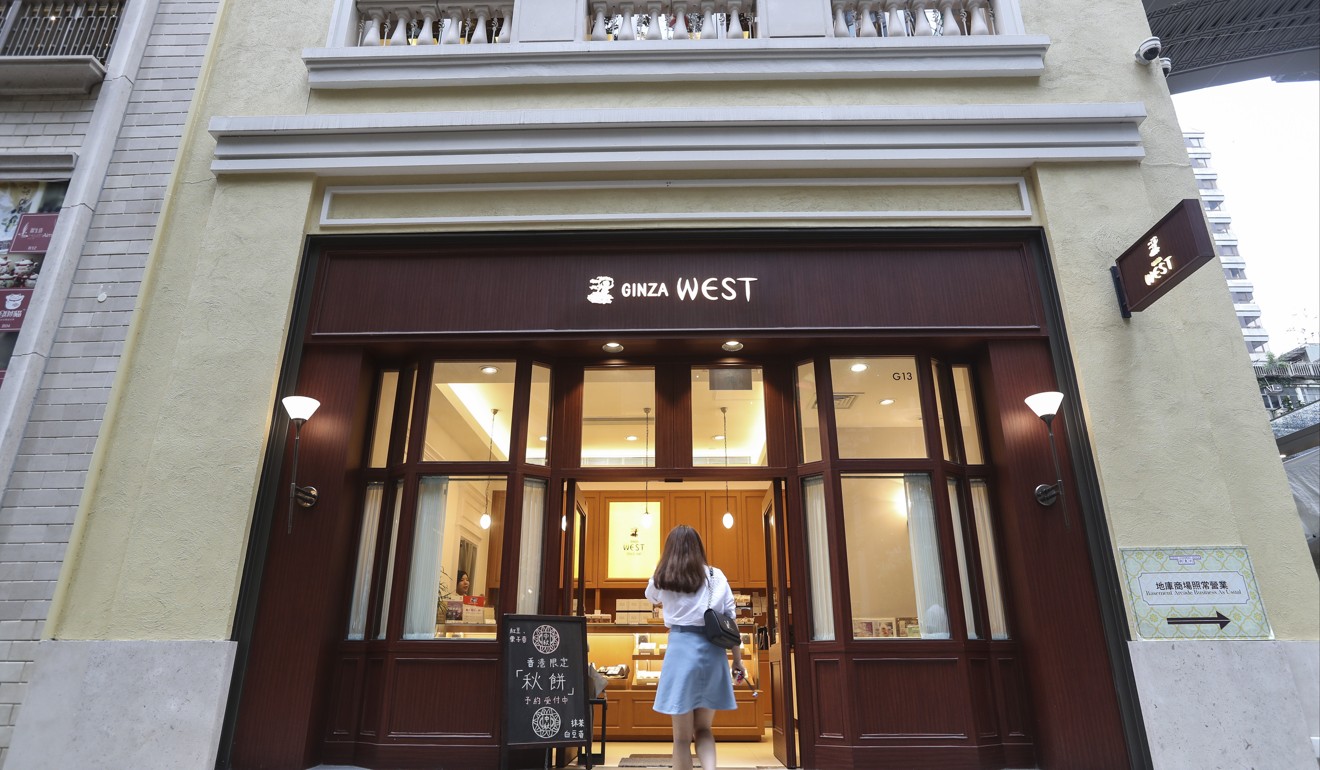
Japanese bakery, a favourite of Hong Kong leader Carrie Lam, brewing plans for new concept cafes
After his store made headlines following visit by Chief Executive Carrie Lam, businessman now intends to open up cafes serving Japanese coffee in spacious set-up
The co-owner of a Japanese bakery which made headlines after its cookies were bought by Hong Kong leader Carrie Lam Cheng Yuet-ngor is looking at opening a new chain of concept cafes even as the coffee market in the city gets more competitive.
But high rents are proving an obstacle for Baniel Cheung Tin-sau, just like when he first opened Ginza West, the baked goods store in Wan Chai, two years ago.
The bakery was put in the spotlight earlier this year after Lam made a visit to buy sweet treats for journalists during her election campaign.
Cheung, Ginza West’s director and local representative, plans to open cafes serving Japanese coffee – produced by a joint venture between rivals UCC and Pokka – in a spacious, clean set-up, similar to that found in Apple stores.
Ginza West, which originated in Japan, is famous in Tokyo for its baked goods and coffee, and counts Japanese Prime Minister Shinzo Abe and Emperor Akihito as some of its patrons. Its crispy, multilayered handmade cakes are one of its specialties.

Cheung brought the shop to Hong Kong in 2015, where it is now selling cookies and more on The Avenue, the former Wedding Card Street.
“Though UCC and Pokka are giants in the coffee business and are fierce competitors, they are also partners in this case, so there is a ‘coopetition’ – meaning cooperation and competition – between them, and we think the product of their joint efforts will be appealing,” Cheung said.
“I think Hong Kong’s sophisticated middle-class consumers are ready for ‘coffee 3.0’, which is the next stage from the current coffee ‘2.0’ where we see chain stores on every street and in every shopping mall.”
Explaining the idea, he said: “In the concept coffee 3.0, people can communicate freely without barriers – like in an Apple store. I think coffee lovers would welcome our Japanese coffee – milder than Western coffee – in an open space environment [like that seen in] start-ups which is conducive for informal exchanges.”
He said he is considering opening the shops, which have yet to be named, in the new business district of Kowloon East, an area currently popular with start-ups, as well as in traditional business districts such as Central.
In coffee obsessed Hong Kong, independent shops are fighting for their slice of the cake
“It makes commercial sense too, as there are too many chain shops,” said Cheung, who is also a business consultant and adjunct assistant professor in the faculty of business and economics at the University of Hong Kong.
But he added that rent was a key consideration, similar to his experience when he was looking for retail space for his cake shop.
“We looked at many locations, but based on the rents they charge, it was almost impossible to make a profit. Even for the Wan Chai location we chose, the human traffic failed to live up to expectations, yet the rent remained at the same high level,” Cheung said.
“The former Wedding Card Street location is supposed to be a conservation project that offers something different in Hong Kong, but if the rents are as high as elsewhere, then what you get will be no different from other chain stores.”
Cheung, who is currently teaching an international MBA course jointly offered by HKU and Fudan University in Shanghai, believed that many in the city would welcome something different, and would be happy to pay a premium for such products.
“But that doesn’t mean it will be easy to make a profit.”

